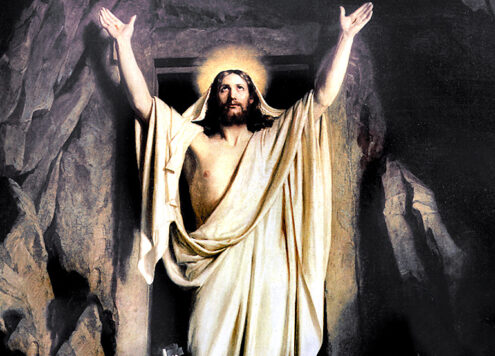—The Gospel of Matthew, chapter 13:1–23
Jesus was a master storyteller, and His most effective form of storytelling was indeed the parable. A parable can be described as a story with a religious message.
In the parable of the sower, Jesus compares the word of God to seed which a farmer, who represents God, plants in the soil which, in turn, represents the human condition in all its complexity. This parable talks about seed which is sown on a footpath, on rocky ground, among thorns and, finally, on good soil.
Why would any farmer, you may ask, waste the seed by planting it on a footpath where it would be eaten up by birds or on rocky ground where there was no soil or among thorns where it would be choked to death? He would naturally, if he was a sensible farmer, sow his seed in good soil where it could produce a good harvest. Why then does the Lord tell this parable which, at first glance, appears to be unreal and not credible?
The answer is that this parable should be taken metaphorically, not literally, because it represents God’s merciful action in the lives of all His people, the lost, the lukewarm, the confused, and the the well disposed.
It surely is no surprise to us then that the disciples asked Jesus the meaning of this parable? The Lord explains:
1. The seed along the footpath represents “those who hear the message about the kingdom” without understanding it. It goes in one ear and out the other, and because there is no understanding of the word, it produces no fruit, offers no results. It has fallen on deaf ears. The “evil one snatches away what was sown in them.”
2. The seed that falls on rocky ground represents “those who receive the message gladly” in the beginning. But, since it does not take root in them, they fall away as soon as “trouble or persecution” come along.
3. The seed that falls among thorns represents those who hear the message, appreciate it at first but are overpowered by “worries about this life and the love of riches” which choke the message.
4. Finally, the seed sown in good soil represents those who “hear the message and understand it.” These are the people who “bear fruit” according to their capacity – “a hundred or sixty or thirty-fold.”
This beautiful parable creatively addresses the different responses or lack thereof from people to Jesus’ message.
Of the four types of responses to the Lord’s message in this parable, there is only one response that is really fruitful and that is the last one. It addresses those who, like good soil, receive the word, understand it and bear fruit, according to their capacity.
This does not mean that the other types of people, whose responses fell short, are to be ignored for the Lord reaches out to them also. He wants us to be aware of the difficulties some of His children, even ourselves, face in responding to His Word. At different periods of our lives we may have fallen into one or other of these categories but, through the mercy and grace of God, we were saved. Our lives are a journey, we get in trouble and we get out of trouble, but whatever shape our troubled journey takes, the LORD is always waiting with outstretched arms to welcome us into His kingdom.
All it takes is that we turn towards Him with a good heart.
The Lord continually reminds us throughout the gospels that He wants us to follow Him. But, we must be disposed to receive His word. Like good soil, we dispose ourselves to receive His word when we read it, when we meditate upon it and when we act by it. That is the response of his faithful followers:
“Blessed are those who hear my word, and keep it.”
—Fr. Hugh Duffy











2 Comments
Ed Mirasol
Amen to that!
Teresa
Wonderful interpretation of the gospel reading for today. Thank you, Father Duffy! Teresa